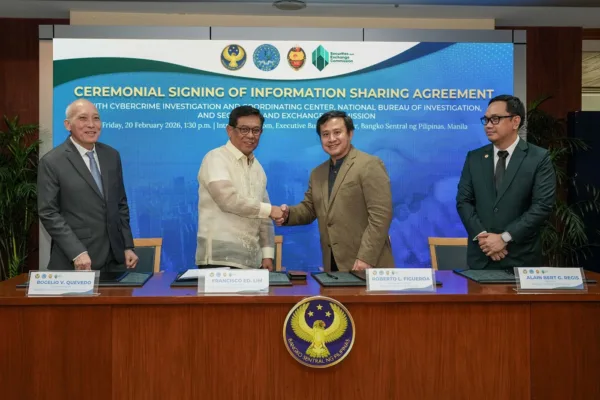In a significant move to enhance the security and efficiency of digital payment systems in the Philippines, the Bangko Sentral ng Pilipinas (BSP) recently issued Circular No. 1198, which introduces a comprehensive Regulatory Framework for Merchant Payment Acceptance Activities (MPAA).
According to the BSP’s media advisory, the circular is poised to set new standards and best practices aimed at safeguarding customer funds and protecting merchants’ rights in their dealings with Operators of Payment Systems (OPS) involved in MPAA.

The MPAA framework is designed to address the rapidly evolving landscape of digital payments, where merchant payments represented a substantial 64.9 per cent of all digital transactions in 2023.
As digital transactions become increasingly dominant, the BSP’s framework aims to ensure that OPS engaged in MPAA are equipped with the necessary governance structures and risk management measures to mitigate various risks associated with their business models.
These risks encompass settlement, operations, information technology, anti-money laundering (AML), counter-terrorism financing (CTF), funding counter-proliferation of weapons of mass destruction, and protecting end-users.
Key Provisions of BSP’s Circular No. 1198

The new framework outlines stringent governance, risk management, and reportorial requirements that OPS-MPAA must adhere to.
Among its key provisions is the requirement for OPS to engage in or intend to engage in merchant acquisition to obtain a license from the BSP. Merchant acquisition refers to the service provided by an OPS to accept and process payment transactions on behalf of a merchant, ultimately resulting in the transfer of funds to the merchant.
This ensures that only licensed entities can provide these critical services, thereby maintaining a high standard of security and reliability in digital payment systems.
In addition, the framework mandates that OPS engaged in MPAA activities other than merchant acquisition must register with the BSP, following the guidelines laid out in Section 502 of the Manual of Regulations for Payment Systems.
This registration process is part of the BSP’s broader efforts to maintain oversight over all aspects of digital payment systems and ensure that all operators comply with national standards and regulations.
The Payments Supervision and Licensing Department of the BSP will be responsible for processing applications for the Merchant Acquisition License, as well as conducting ongoing supervision and examination of OPS-MPAA.
This department will play a critical role in ensuring that the entities involved in digital payment processing are operating within the regulatory framework established by the BSP, thereby contributing to the overall stability and security of the payment ecosystem in the Philippines.
Strengthening Confidence in Digital Payments
One of the primary goals of this regulatory framework is to enhance end-user confidence in digital payments. By establishing clear governance and risk management protocols, the BSP aims to create a more secure environment for both merchants and consumers.
This is particularly important as the country continues to experience rapid growth in digital transactions, driven by the increasing adoption of e-commerce, mobile payments, and other digital financial services.
The BSP’s initiative also aligns with the broader objective of developing a safe, efficient, secure, and reliable payment system in the Philippines.
By working closely with the payments industry, the BSP is committed to fostering an enabling regulatory environment that supports innovation while ensuring the protection of all stakeholders involved in digital payments.
In a recent media advisory, the BSP also announced that the Philippines has successfully met its ambitious target of digitalizing half of its retail payments and is now on the right track towards achieving its goal of being a cashless economy.
Enforcement and Compliance
The BSP has also outlined enforcement measures for non-compliance with the requirements set forth in Circular No. 1198. Entities that fail to adhere to the regulations may face enforcement actions under the National Payment Systems Act and the New Central Bank Act, as amended.
These actions underscore the BSP’s commitment to maintaining the integrity of the payment system and ensuring that all participants comply with the established regulatory standards.
As digital transactions continue to grow in prominence, the introduction of this new regulatory framework marks a significant step forward in the BSP’s ongoing efforts to promote a secure and efficient payment ecosystem in the Philippines.
By setting clear standards and expectations for OPS-MPAA, the BSP is helping to build a more resilient and trustworthy digital financial system, ultimately benefiting both merchants and consumers across the country.







